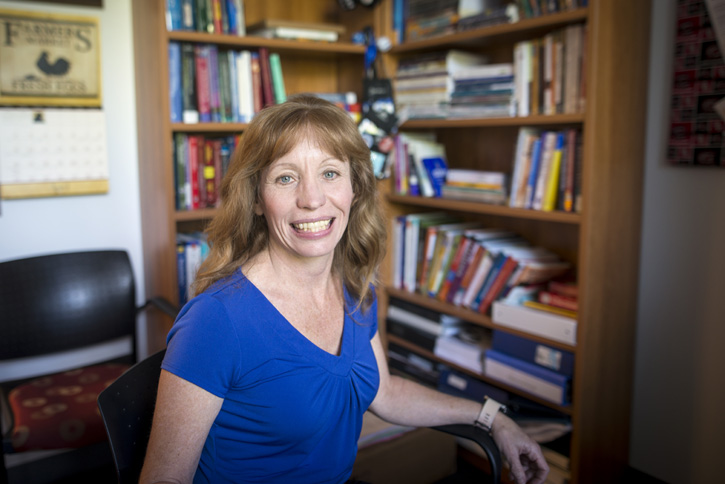
Assistant Professor Elizabeth Johnson contributed to the U.S. Census Bureau's Statistics in Schools program for K-12 teachers and students. Photo by Evan Cantwell.
When Elizabeth Johnson says that many students lose interest in math during middle school, she is speaking from experience.
An assistant professor of statistics in George Mason University’s Volgenau School of Engineering, Johnson taught high school math for several years in her native South Carolina.
“Somehow we kill math,” she said. “In elementary school they love it, they soak it up. But by the time they get to high school they lose interest in it. It’s the worst thing in the world.”
That is why Johnson was happy to be part of the U.S. Census Bureau’s updated Statistics in Schools program for K-12 teachers and students. The program, in which Johnson applied to participate, offers free classroom-ready activities and resources that help students understand real-world applications of statistics.
That is important, Johnson said, because the world has become so driven by data analysis.
“The key is, can we make it more exciting for them?” Johnson said. “Can we make it more meaningful to them so they’ll continue their studies?”
Not only did Johnson’s team have to come up with interesting lessons in both teacher and student versions (students can download the lessons online), it had to make sure to meet the standards and guidelines of the National Council of Teachers of Mathematics and the American Statistical Association.
Lessons include using fractions to compare amusement parks by state, creating data tables by categorizing classroom items, and comparing data on camping and backpacking goods.
Johnson said the exercise was rewarding for her as an educator, as collaborating with peers and using real data reinforced the necessity of making lessons accessible and interesting at all levels.
She audited the lessons, as well.
“I went through it and tried to do it from the point of view of a sixth grader, all the steps,” she said. “That’s half the battle. You make sure when you set up an activity, can you do it? We made sure it wasn’t going to frustrate them.”
“We want them to be critical readers and thinkers,” Johnson added. “It could be very dry, but hopefully they will be so interested in this they’ll be doing it without realizing they’re doing it.”
